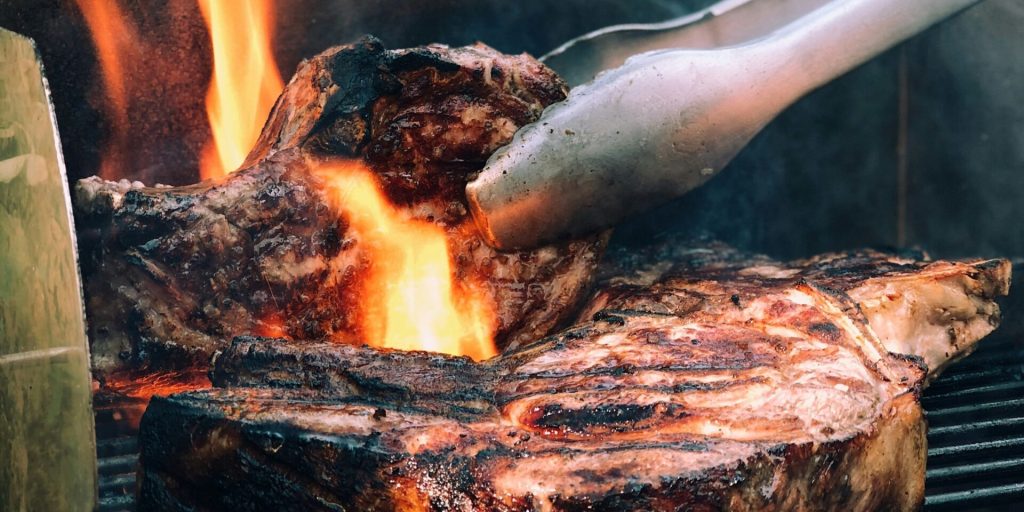What I Should Know About TMAO

Elevated levels of TMAO may contribute to the risk of vascular thrombosis, including strokes and heart attacks. Individuals with elevated blood levels of TMAO have evidence of increased risk of death, according to researchers at the Cleveland Clinic. Other studies, however, have not confirmed TMAO as an independent risk factor for heart attacks and strokes. In view of this information, better understanding of TMAO seems relevant when discussing heart health and longevity.
There seems to be an ongoing debate about the best diet for health and longevity. Various food tribes gather and espouse the values of their unique diets. Plant-based, Ketogenic, Carnivore, Mediterranean, and other unique food-selective dietary options all have positive and some adverse health effects. I take more of an “ecumenical” approach to food recommendations, taking the best of various diets to develop a strategy of choosing the best quality within each option.
The carnivore and ketogenic diet plans tend to consume more meat and fish. These diets tend to include a high consumption of choline and carnitine. Choline is an important nutrient for brain function. Eggs, liver, salmon, and turkey are rich sources of this nutrient. Red meat, pork, fish, and dairy products are rich in carnitine. Both nutrients benefit overall metabolism and are good resources for energy production. Research has suggested that one of the byproducts of these diets is the production of a potentially harmful substance called TMAO. There has been somewhat conflicting research about this compound because of its potential link to the development of underlying atherosclerosis, which is the development of plaque within the arteries of the body. It is essential to understand the latest information regarding this agent when considering food intake and preparation. It is also necessary to consider the potential risks involved if an elevated TMAO level is identified in your blood.
TMA is a compound initially produced in the gut. Everyone has a unique composition of bacteria in their gastrointestinal tract. Bacteria members of the Bacteroides, Firmicutes, and Prevotella genera tend to have a higher production of TMA. At the same time, the Lactobacillus and Bifidobacterium species are associated with reduced production of TMA. TMA is the original compound produced by the bacteria breakdown of choline and l-carnitine. TMA is then converted to TMAO in the liver. High levels of TMAO have been suggested to increase the risk of coronary artery disease and cardiovascular death, but the science is somewhat unclear. Diets high in red meat, dairy, egg yolks, and deep-water fish will more likely result in higher levels of TMAO, but production will also be influenced by the type of bacteria population in the gut. The kidneys clear TMAO and elevated levels are commonly seen in patients with underlying kidney dysfunction.
Human and animal studies reveal that elevated TMAO levels may play a causative role in the development of diabetes. In addition, elevated TMAO levels are also observed in the diabetic population, but a cause-and-effect relationship has not been firmly established. Disruption of the normal gut bacteria population, known as gut dysbiosis, is associated with various metabolic diseases, including diabetes. The overgrowth of TMA-producing bacteria may be related to poor dietary habits that are more common in adult-onset diabetics and may partially explain the increased levels of TMAO in this population.
It is feasible that TMAO elevation is a marker of increased risk rather than a causative factor in the development of vascular disease. Elevated TMAO may be simply an independent warning of underlying metabolic disease related to diabetes, kidney disease, and gut dysbiosis. Diet plays some role in TMAO levels, which are typically low in individuals who do not eat meat, such as vegetarians and vegans. TMAO levels tend to be higher in individuals who favor high meat consumption. Elevated TMAO levels in those individuals who follow the carnivore diet are thought to be at higher risk for the secondary effects of elevated TMAO levels based on the increased consumption of choline and carnitine. At present, however, there is no conclusive data that a carnivore diet is associated with a dramatic increase in coronary artery disease and other vascular diseases, even though carnivores also consume a more significant amount of saturated fat.
TMAO production is variable in different individuals. As a result, increased consumption of red meat will not always cause an elevation in the TMAO level. These individuals’ healthier gut microbiome may explain this observation. Diabetic patients appear to have a greater propensity to develop arteriosclerosis when TMAO levels are elevated, as well as those individuals who have abnormal gut microbiome function (dysbiosis). The most significant risk patients appear to be diabetic patients with underlying renal and gut microbiome dysfunction. Those who consume several energy drinks daily may also be at increased risk of TMAO production because of the presence of both choline and phosphatidylcholine in these beverages. Interestingly, TMAO levels are typically low in individuals who do not eat meat, such as vegetarians and vegans. Cruciferous vegetables such as broccoli, Brussels sprouts, and cauliflower have higher amounts of choline but have other health benefits and fiber content that likely reduces their risk of causing concern about TMAO production.
There are reasonable strategies to combat an elevated TMAO level. Prebiotics can reduce the production of TMA in the gut by promoting healthy bacteria. Prebiotics are fibers in certain non-digestible foods, including onions, garlic, asparagus, bananas, and various root vegetables. Root vegetables typically grow underground, including carrots, beets, potatoes, sweet potatoes, yams, and radishes. Probiotics can also be beneficial, including supplements with high populations of Lactobacillus and Bifidobacterium species. A change in diet and a change in our gut bacteria can have a significant influence on TMAO production. Berberine is a supplement that has also been shown to have beneficial effects on the potential risk of gut-induced metabolic diseases. Its role in TMA production is unclear, but it is a reasonable consideration for use in the diabetic population because of its benefit on blood sugar levels.
DMB (3,3- Dimethyl-1-butanol) is a compound found in cold-pressed extra virgin olive oil, some red wines, and balsamic vinegar. Grape seed oils also appear to contain this compound. DMB blocks the production of TMAO in the gut and may serve as a natural way of reducing atherosclerosis that would otherwise occur with increased circulating levels of TMAO.
In summary, the message appears that eating increased amounts of red or processed meat, whole dairy products, and eggs may significantly increase TMAO levels, which could enhance the risk of atherosclerosis. Alteration of the gut bacteria that produce TMA utilizing prebiotics and strategic probiotics can help lower this compound’s production. Adding cold-pressed extra virgin olive oil, balsamic vinegar, grape seed oils, and some red wine to food preparation increases the gut bioavailability of the TMAO-blocking compound DMB. This finding may explain some of the benefits of the Mediterranean diet on overall cardiovascular mortality. A plant-based diet may be a better option for longevity and overall cardiovascular health, but these diets are more challenging to maintain and follow. In those who enjoy meat and fish in their diet (including me!), the judicious use of certain vegetables, olive oil, and balsamic vinegar can provide a flavorful and healthy addition to a healthy eating regimen. For those individuals who enjoy the carnivore or ketogenic diet, choosing prebiotics and targeted probiotics to lower TMA production and improve gut bacterial health can offer a reasonable solution to offset any concern about enhanced cardiovascular risk. The most important goal is to enjoy what you eat while striving for a healthy and happy life.
Buon appetito!
